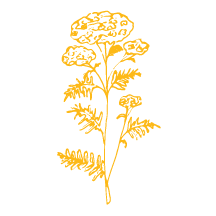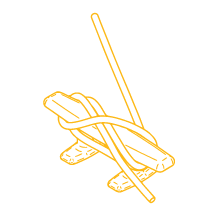
It’s seal pup season in Maine.
Harbor Seals give birth to single pups around the Boothbay Region in May and June. The young stick close to their mothers for about a month, at which point they are on their own. Within 2-3 days of their birth, pups can already dive, holding their breath for up to 2 minutes. They grow quickly thanks to their mothers’ rich fatty milk.
Independence—an important part of survival—comes quickly to Harbor Seal pups.
When mother seals hunt they often leave their young behind, at times for an hour or more. It is not unusual for passersby to assume an unattended pup is in trouble—the animal appears far too vulnerable and helpless to actually be okay.
“If you encounter a lone resting harbor seal pup,” warns the Marine Mammals of Maine website (a non-profit that assists with marine life strandings), “it is very important to first remain a safe distance away and keep the area as quiet as possible to give the pup the best chance of reuniting with its mother.”
In such situations, onlookers are counseled to presume wellness—to trust the natural order of things is unfolding as intended. If there’s any doubt, that same website suggests reporting the problem to the Maine Marine Animal Reporting Hotline at (800) 532-9551 rather than approaching the seal.
But the general guidance is clear: best to leave them be.
Not always, though.
A few years back a seal appeared at the Southport Island dock in obvious distress, gill net wrapped around his neck and back flipper.
After a series of phone calls, a volunteer from Marine Mammals of Maine arrived. Ignoring the hissing of the distressed seal, he and others loaded the injured animal into a travel crate. The seal was transported to a clinic in Mystic, Connecticut, where he was nursed back to health. Without intervention, he would have died.
(This anecdote from a March 30, 2016, article in the Boothbay Register.)
*****
In the Boothbay Region, nearly one-third of the population is 65 years old or older; a great many are retirees, many of whom live alone in stolid self-sufficiency. This year, 30 young people are graduating from the Boothbay Regional High School—most now legally adults, poised for increased autonomy. As for the rest of us on the peninsula, we too are a people who thrive on our own; a spirited independence integral to our nature—it is who we are.
Best to leave us be. And yet …
Between COVID-19 and our hurting economy, today feels different. Nobody knows what may befall any of us, and the line between allowing autonomy and lending a hand is harder to navigate.
The Southport seal story offers an allegory we may apply to our current situation:
With seal pups and our neighbors alike, best to leave them be—but not without a watchful eye, for lives may depend upon it.




